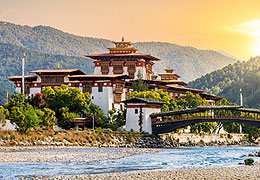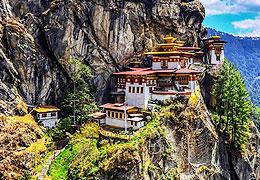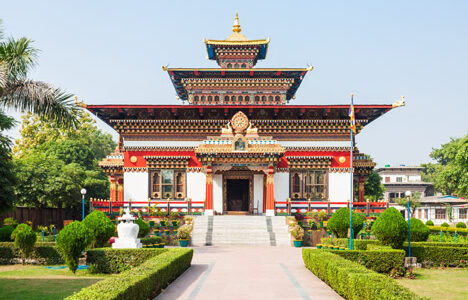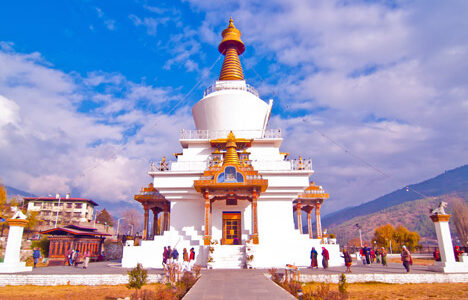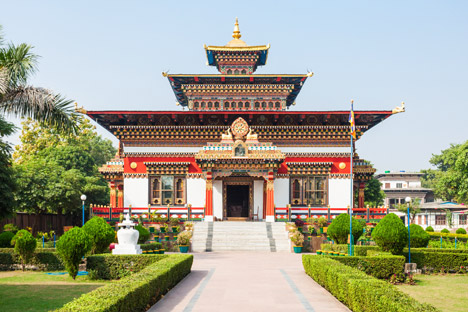Phobjikha, a hidden gem of Bhutan, is nature’s masterpiece and a cultural sanctuary. Blanketed by the misty embrace of the Himalayas, this serene valley is more than just a destination—it’s a symphony of pristine landscapes and Bhutanese traditions.
Phobjikha Tourism
Phobjikha, nestled in the heart of Bhutan, is a picturesque valley renowned for its breathtaking landscapes and rich cultural heritage. This serene destination is a feast for the eyes and offers a unique cultural experience that reflects the essence of Bhutanese traditions. Known as the “Valley of the Black Necked Cranes,” Phobjikha holds immense ecological significance as the winter roosting grounds for these endangered birds. The valley is surrounded by mountains and dotted with quaint villages, making it an ideal retreat for nature lovers and those seeking a peaceful escape. Phobjikha’s charm lies in its unspoiled beauty, traditional architecture, and the warmth of its inhabitants. Visitors to Phobjikha can expect a tranquil journey that combines natural wonders with cultural immersion.
BHUTAN TOUR PACKAGES
THINGS TO DO IN PHOBJIKHA
Nature Walks
Nature Walks
Embark on nature walks through the picturesque landscapes of Phobjikha. The valley’s pristine environment and fresh mountain air make it an ideal destination for those seeking tranquility and natural beauty.
Yoga and Meditation
Yoga and Meditation
Take advantage of the serene surroundings to engage in yoga or meditation. Many accommodations or wellness centers may offer classes or spaces for these activities, allowing you to connect with the peaceful energy.
Bird Watching
Bird Watching
Witness the awe-inspiring sight of Black Necked Cranes during their winter migration. Bird watching is a popular activity in Phobjikha, and the valley provides a peaceful setting for this experience.
BEST TIME TO VISIT PHOBJIKHA
SUMMER SEASON
(June – August)
Summer blankets the valley in lush greenery and marks the onset of the monsoon. This season provides a unique perspective of the valley’s beauty. This season is ideal for nature walks and exploring the picturesque surroundings.
MONSOON SEASON
(September – November)
The monsoon season brings occasional heavy rainfall, which can affect outdoor activities. However, the region looks lush and vibrant during this time. The landscapes are adorned with vibrant colors, and this season often coincides with cultural festivals.
WINTER SEASON
(December – February)
Winter is the best time for bird watching, as the Black Necked Cranes migrate to Phobjikha during this period. While the weather can be cold and there might be occasional snowfall. The valley’s pristine beauty is accentuated by the presence of these majestic birds.
HOW TO REACH PHOBJIKHA
Phobjikha is well-connected to other parts of Bhutan:
However, if you are traveling from India, you can take a train to the nearest railway station, Hasimara Railway Station in West Bengal. From Hasimara, you can then proceed by road to Phobjikha.
Popular Tour Packages
FAQs about Phobjikha Travel Guide
What is the significance of the Black Necked Cranes in Phobjikha?
The Black Necked Cranes hold ecological and cultural significance in Phobjikha. They migrate to the valley during winter, and their arrival is celebrated with a festival. The cranes are considered sacred and are protected as an endangered species.
Can visitors participate in the Black Necked Crane Festival?
Yes, visitors are welcome to participate in the Black Necked Crane Festival. It’s a unique opportunity to witness traditional Bhutanese dances, music, and rituals while celebrating the conservation efforts for these majestic birds.
Are there any restrictions on photography during the Black Necked Crane Festival?
While photography is generally allowed, it’s advisable to be respectful and seek permission before taking pictures, especially during religious ceremonies or performances.

